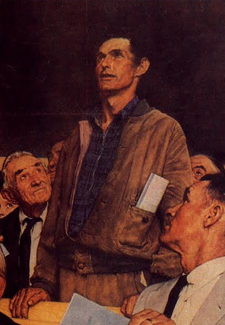Though centralized power, coalescing in Washington, D.C., has increased in recent years as a bipartisan effort to grow government, it’s worth noting that true federalism is not dead.
Take one of America’s longest-running atrocities, the “War on Drugs.” The American people are rebelling, leaving their political representatives, state and national, in the back seat. The recently successful marijuana legalization initiatives in Colorado and Washington State are already taking effect, thus marking a major retreat in the once-popular, now increasingly hopeless war.
Last Friday, The Seattle Times reported that King County has dismissed 175 cases involving people over 21 and possession of one ounce of cannabis or less. “Although the effective date of I‑502 is not until December 6, there is no point in continuing to seek criminal penalties for conduct that will be legal next month,” explained the county prosecutor.
A smaller number were dismissed in Pierce County, with its prosecutor saying that, “as a practical matter, I don’t think you could sell a simple marijuana case to a jury after this initiative passed.”
In Colorado, a major drug task force has been disbanded. The excuse is lack of funds, but I suspect that Colorado officials had read the writing on the wall, and it wasn’t “Mene, Mene, Tekel, u‑Pharsin” — it was the wording of Colorado’s Initiative 64.
The federales don’t have the manpower to enforce federal law in the 50 states, or the constitutional authority to dictate state enforcement of either federal law much less the nature of state criminal laws.
Courtesy of the citizen initiative, we could be seeing the next major devolution of power away from the nation’s capital.
This is Common Sense. I’m Paul Jacob.





